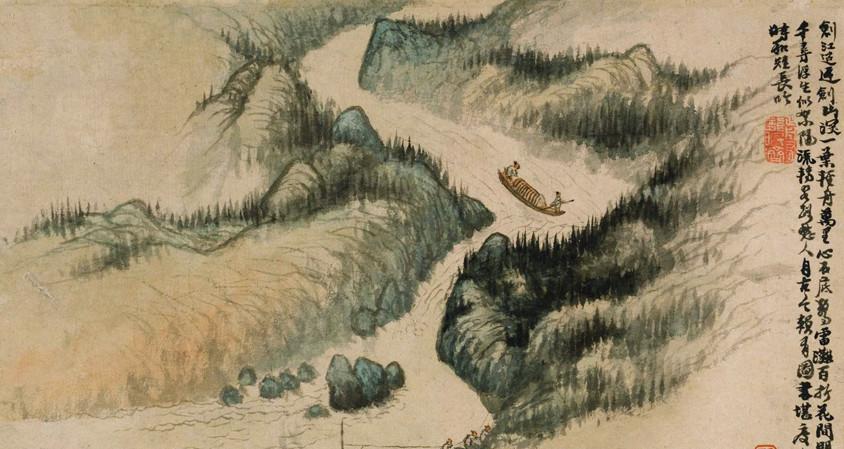Su Shunqin lived during the Northern Song Dynasty, and he was a native of Sichuan. He lived only 40 years, but left behind many popular poems. Later generations compared him to Mei Yaochen and collectively called him "Samui". In the era when Su Shunqin lived, the Xikun style was the mainstream of poetry. Most poets like to write empty and gorgeous works, which read neatly, but have no taste. Su Shunqin was not accustomed to the creative atmosphere of the poetry world, and he decided to emulate the Guwen movement and advocate the reform of poetry.

To quote a typical Xikun poem, for example, "Xiao Dengyun wailing, night crossing the middle tide of the moon." May the Festival of Loyalty be established for life." There is no poet's feelings between the lines, only the accumulation of words. Such poetry has no vitality and no practical significance, and Su Shunqin, out of the sense of responsibility of the literati, feels the need to reverse the ills in poetry creation.
Look at Su Shunqin's poem, "The green poplars are self-satisfied, and the near water and the distant mountains are all affectionate." Readers can see at a glance what feelings Su Shunqin is expressing, and such works can touch people's hearts. Su Shunqin has high requirements for himself in literary creation, and he likes a simple and robust style. Through the study of ancient texts, he hopes to learn the essence of the ancients.
Su Shunqin was a young man and entered his career in his early 20s, becoming a grassroots official serving in the Taimiao Temple. During his tenure, the Inner Court Hall was destroyed by fire. The emperor wanted to rebuild, and Su Shunqin went up to express his opposition. He felt that construction should not be carried out in a big way, and the cost of repairs should be used for people's livelihood. Fortunately, the emperor in charge was Song Renzong, otherwise Su Shunqin's career path would most likely come to an abrupt end.
Su Shunqin was an upright man, Fan Zhongyan, Ouyang Xiu and others advocated reform, and the conservative Lü Yijian slandered and suppressed several of them. Su Shunqin was righteous, and he openly supported the innovative ideas of Fan Zhongyan and others. Most of the officials were jealous of Lü Yijian's power and did not dare to speak out, but Su Shunqin did not care. When Fan Zhongyan was demoted from Beijing, Su Shunqin went to send off and wrote poems to give to him. Praising a literati for having a sense of justice, he is often described as a "literati bone". Looking at Su Shunqin's deeds, we can understand the meaning of the literati style and bones, not to be coerced and tempted, to adhere to fairness and objectivity, and to refuse to collude with the same stream.
It is difficult to uphold justice, and the more you insist on it, the more people will be offended. Once, su Shunqin used to entertain guests with public funds according to the custom, and Yushi Zhongcheng framed him for corruption. The emperor did not order a thorough investigation, and preconceived the crime. Su Shunqin was relegated to civilian life, when he was in his 30s.
After Su Shunqin was degraded, he moved to Suzhou, where he bought a wasteland and built a Canglang Pavilion to show his heart. The ancients said, "The water of the waves is clear, and you can muddy me." The water of the waves is muddy and can muddy my feet. Su Shunqin put his energy into literary creation, and he wrote a "Record of Canglang Pavilion" to express the freedom after retreat.